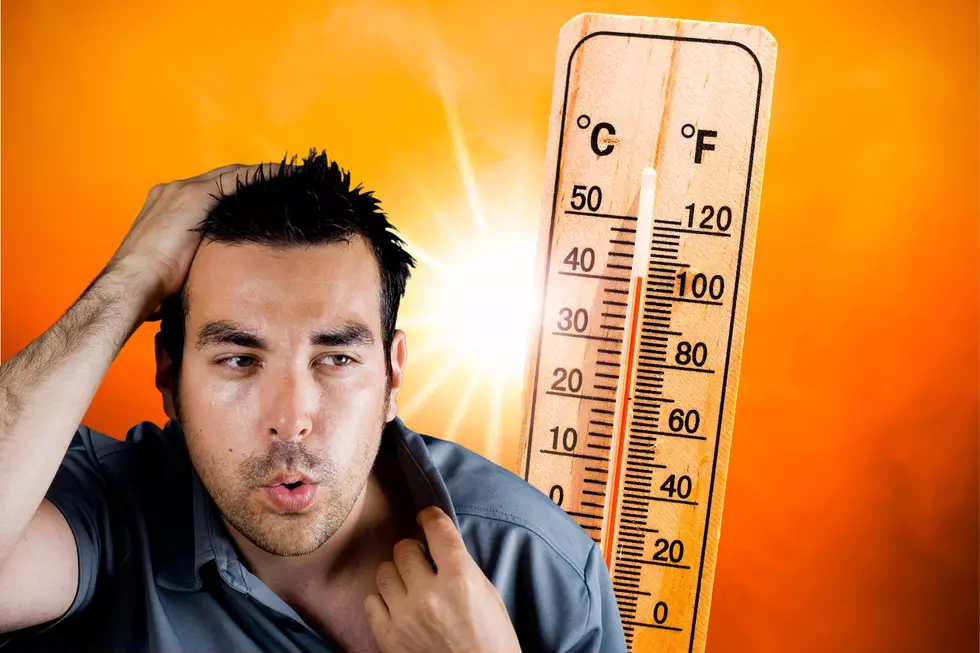
‘Prolonged Heat Wave’ Expected for the Evansville Area Next Week
All good things must come to an end, as they say (whoever "they" are). After a pretty nice run of weather over the past month with temperatures in the 80s and the humidity staying on the lower end of things more times than not, things are about to get much hotter in the Tri-State with a heat wave expected to blanket the area for the majority of next week.
"Prolonged Heat Wave Likely Next Week" - National Weather Service
Residents will start to notice a rise in the temperature beginning on Sunday with the forecast calling for mostly sunny skies and temperatures in the low-90s. It will only get hotter (a.k.a. worse) from there according to a tweet from the National Weather Service Friday morning calling for a "prolonged heat wave" to set in on Monday and last most of the week.

The National Weather Service is forecasting temperatures in the upper 90s, and possibly hit triple digits on Tuesday and Wednesday. Of course, around here, it's not the heat its the humidity that will get you, as we like to say, and there will be plenty of that to go around as well with the daily heat index expected to reach near 110-degrees.
While we'll get a little relief when the sun goes down, it won't be much. We spoke with meteorologist Joe Bird from our media partner WEHT/WTVW Eyewitness News who said the temperatures will likely be hovering around the 80-degree mark before the sun comes up by midweek. Ugh. Sounds like we're all in for a case of the instant sweats as soon as we step outside.
How to Keep Yourself Safe During Extreme Heat
All kidding aside, we're no strangers to this type of weather during the summer months, and it's important we take it seriously to avoid any major health problems. Especially if you have to be out in the heat for long periods of time because of your job, or you're attending an outdoor sporting event like a youth baseball game.
One of the biggest issues you could find yourself in would be dealing with heat exhaustion or heat stroke, with the latter being the more dangerous of the two. Here's how to tell if you or someone you know is suffering from either, courtesy of the National Weather Service:
In order to avoid finding yourself dealing with either of these, the National Weather Service offers the following tips for keeping yourself safe:
- Limit strenuous activity to early morning or evening hours, if possible
- Take frequent breaks in air-conditioned areas
- Drink plenty of water
If you have elderly family members or neighbors, be sure to check on them frequently as they are more susceptible to developing heat stroke. Also, if you have outdoor pets or livestock, make sure they have plenty to drink and a shaded area to rest in. And finally, DO NOT leave children or pets in a locked car for any amount of time while running errands. Even if you think you'll only be a minute. The temperature inside a car can rise well above the outside temperature in just a matter of minutes.
Unfortunately, it looks like we'll be stuck with temps exceeding 90-degrees for the foreseeable future, according to The Weather Channel, with little-to-no rain to give us some relief anytime soon. Stay safe!
[Sources: National Weather Service on Twitter / Lifespan.org / The Weather Channel]
LOOK: The most extreme temperatures in the history of every state
More From WKDQ-FM








![Nashville Artist Heads to Sandy Lee Watkins Songwriters Festival [Audio]](http://townsquare.media/site/71/files/2024/07/attachment-GettyImages-1126553953.jpg?w=980&q=75)
